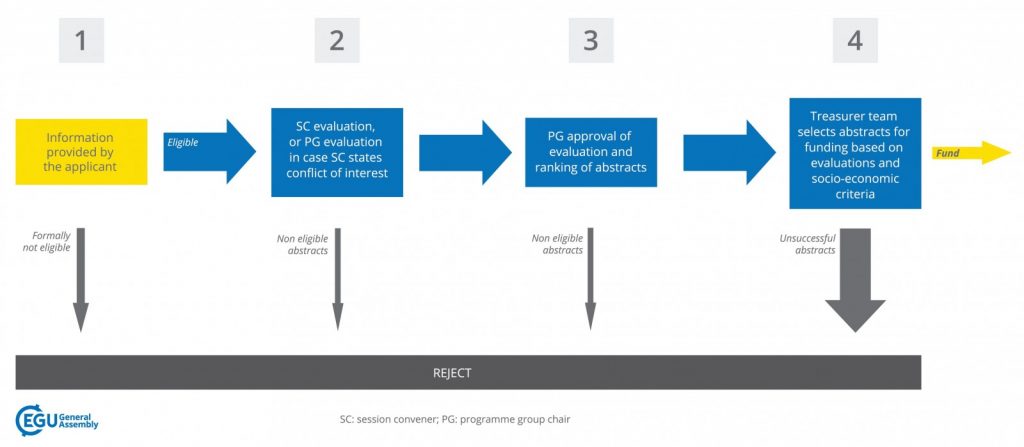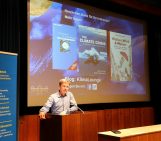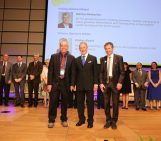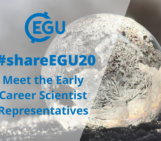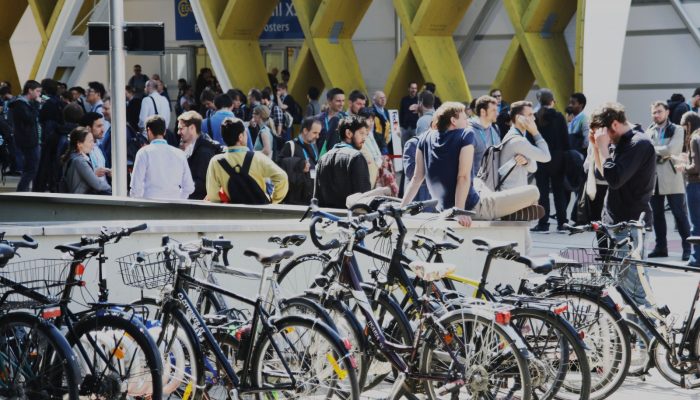
The EGU is committed to promoting the participation of both early career scientists and established researchers from low and middle-income countries who wish to present their work at the EGU General Assembly. In order to encourage participation of scientists from both these groups, a limited amount of the overall budget of the EGU General Assembly is reserved to provide financial support to those who wish to attend the meeting.
In honour of Roland Schlich, who was instrumental in the formation of EGU, the travel awards will, from now on, be known as the Roland Schlich travel support scheme. Roland passed away in 2016 and was executive secretary (2002–2004), treasurer (2005–2015), as well as one of the founders of the Union.
From 2005 to 2018, the total amount awarded grew from about €50k to €120k, with 275 awards being allocated to support attendance to the 2017 General Assembly, representing a 31% application success rate. About 80-90% of the funds are reserved to assist early career scientists in attending the conference, whilst the remaining funds will be allocated to established scientists.
Financial support includes a waiver of the registration fee and a refund of the Abstract Processing Charge (relating to the abstract for which support was requested). Additionally, the grant may include support for travel expenditures, at the discretion of the Support Selection Committee, to a maximum of €300.
Eligibility
The EGU currently runs two different Roland Schlich travel support schemes: Early Career Scientist’s Travel Support (ECSTS) and Established Scientist’s Travel Support (ESTS); you will be able to find more details about each of these awards on the Support & Distinction section on the EGU 2018 website. You will also find details on who is eligible for the awards on the website.
Scientists who wish to apply for financial support should submit an abstract, on which they are the contact author, as well as the first and presenting author, by 1 December 2017. Late applications, or applications where the scientist is not the main author, will not be considered.
The EGU Support Selection Committee will make its decision to support individual contributions by 22 December 2017. All applicants will be informed after the decision via email in late December or January. Only the granted amount mentioned in the financial support email will be paid out to the supported contact author.
Please note that, as of 2017, a participant can receive a maximum of two ECSTS and two ESTS during their career. In other words, applicants who have received two travel supports in a category in the past are not eligible to apply for that category again.
How to apply
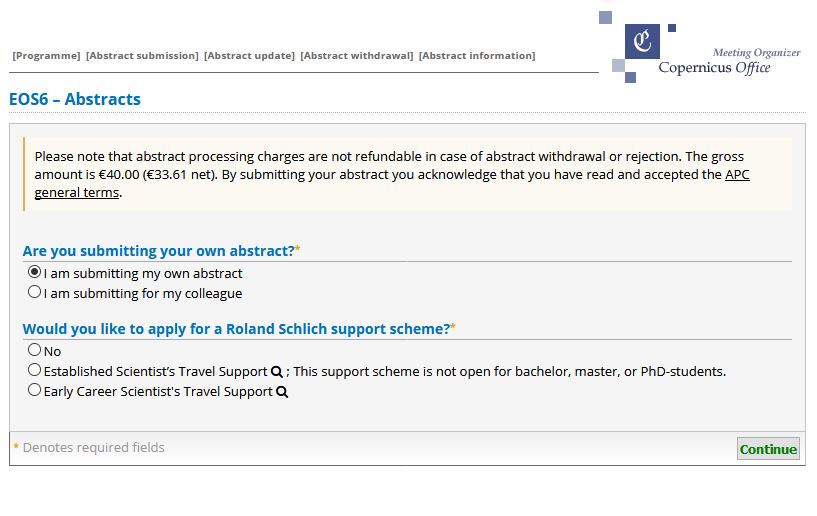
The abstract submission page (click for larger). If you wish to apply for financial support, please select the relevant support box.
To submit the abstract of your oral or poster presentation, please enter the call-for-abstracts page on the EGU2018 website, select the part of the programme you would like to submit an abstract to, and study the respective session list. Each session shows the link to Abstract Submission that you should use. More information on how to submit an abstract is available from the EGU 2018 website.
Applying for financial support is easier than ever! As soon as you make your choice of session you will be prompted to select whether you wish to apply for financial support. If you do, be sure you tick the appropriate box when submitting your abstract. Bear in mind that, even if you are applying for support, you will still need to pay the Abstract Processing Charge. A screenshot of the abstract submission process is shown below.
Evaluation Criteria
As of 2015 there is an improved selection process for the allocation of the awards. Abstracts are evaluated on the basis of the criteria outlined below:
| Weight | |
| How well does this contribution fit into the session it is submitted to? | 10% |
| Is this contribution essential for the session being successful? | 30% |
| Is the abstract clearly structured and scientifically sound? | 25% |
| Are there conclusions and are they supported by data or analysis? | 25% |
| How well is the abstract written (grammar, orthography)? | 10% |
If you have any questions about applying for financial support for the 2018 General Assembly, please contact Laura Roberts (EGU Communications Officer).

